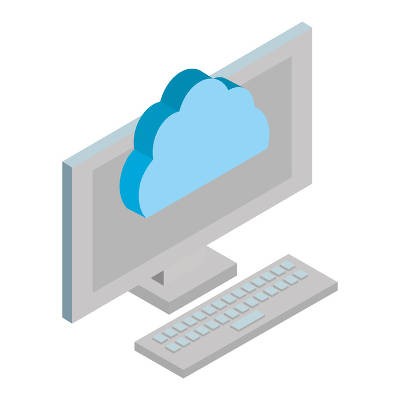All types of businesses use cloud resources as a part of their IT infrastructure. It allows them to turn what was once a major capital expenditure into a controllable operating cost; and, it does it while offering solutions to almost any business problem. The one drawback that most IT professionals agree on is how to gain enough control over a cloud platform to ensure that the platform is secure.
Argentum IT LLC Blog
Small Businesses don’t always have the computing or financial resources--or the need--to purchase a server. Lots of small companies will have a few workstations connected together through a wired or wireless Local Area Network (LAN), but when your business gets to a point where it needs more effective means of collaboration, running that LAN through a server can produce quite a few benefits. Today, we will look at why a server-based LAN is an improvement and what your company’s server options are.
As important as it is to keep your technology up-to-date, it can sometimes be prohibitively expensive to do so throughout your entire business. If you have found yourself in this position, one option you may consider is to resort to hosted desktop solutions. Here, we’ll go over what a hosted desktop is, and how it can serve companies well.
Microsoft offers solutions that have a proven history of being assets when businesses adopt them - but like most any solution, what may fit well for one, may not fit well for all. Here, we’ll consider one of Microsoft offerings to help you determine if it is the right solution for your needs and requirements.
Databases are exceptionally useful for allowing access to important data, but they by default expose data to risks depending on how they are stored. If a database is stored in the cloud, for example, it could potentially be exposed to threats that put the future of your business in jeopardy. Compared to the public cloud, a private cloud database can give you more opportunities for security, flexibility, and customization.
Virtualization has opened up a lot of doors for businesses who want to make their operations more flexible, but your business can’t simply implement it all willy-nilly. You need to have specific requirements in mind for your cloud hardware. This week’s tip is dedicated to helping you make the best decisions possible regarding the adoption of virtualization for your business’ needs.
The cloud has helped many businesses push beyond their limits, but is your organization taking advantage of it? Depending on the needs of your specific business, the cloud can benefit your organization in ways you could never dream of just 20 years ago. We’ll go through some of the best ways the cloud can help your organization.
Nowadays, businesses take advantage of so many solutions that it can be challenging just to keep them all in line, let alone managing and maintaining them all. Of course, the most difficult part of using so much technology is affording it. While you could certainly invest in software licenses for each and every one of you users’ systems, there is an alternative that you should certainly consider.
Were you among the 55.3 percent of employees who took their work devices on the road during this past holiday season? Chances are that if you have employees who find it difficult to complete their duties in the office, they’ll take it home with them over the holidays to make sure they don’t fall behind. Yet, they could potentially be exposing important data to risk, even if it means getting a little bit of work done here and there in the meantime.
No matter how big a business is, it has to leverage at least some IT in order to be efficient. Unfortunately, some organizations are reluctant to implement new technology if they don’t seem to need it immediately. What these businesses don’t know is that the reason they typically don’t implement new solutions--saving money--is in direct conflict with what the solutions are designed to do in the first place.
Evernote is a neat note-taking app that many users have found works for them, as it can be used to keep notes organized in a better way than a traditional notebook. With new features that can offer you plenty of functionality, Evernote might just be the note-taking solution you’ve been looking for all these years. This week’s tip is dedicated to one of the best new features of Evernote: templates.
As the cloud is being utilized by more individuals and organizations to meet their computing needs, more very important data is hosted outside of local computer networks. As a result, people utilize cloud storage for their backup and recovery strategies. In fact, it has become the primary use of cloud-hosted platforms, but just how does backup and recovery from these collaborative cloud-based platforms work?
The search for the right technology for your business sometimes becomes problematic because you either don’t have the necessary capital or operational leeway to integrate the latest and greatest solutions. For the company that needs an upgrade, and doesn’t exactly know what the next move is, consulting with an IT professional is a great option, and can turn your entire business around.
If you think that working with the cloud doesn’t have risks, think again. It’s inevitable that you’ll face security compliance concerns when it comes to your cloud-based data. If your organization has data stored in a cloud-based environment, you’ll want to pay particularly close attention to how compliance laws affect the way that you access and store this information. How can you make sure that your cloud-based data isn’t in violation of some cloud compliance laws?
Cloud computing is a major player in the way that businesses are approaching their daily operations. This might bring into question whether or not your organization is actually using the cloud in the first place, but one thing is certain--if you haven’t implemented the cloud yet, it’s difficult to not do so, especially considering how great it can be for your company.
Technology is a necessity for businesses everywhere if they are to reach their goals, which are themselves influenced by the technology that businesses have access to. If this cycle is to continue, a business needs to establish what is expected to come next in the line of IT innovation. From the looks of it, businesses are currently placing convenience in high regard.
Technology is a big deal for the modern business. This doesn’t mean just your organization’s workstations and servers either. Today there is a big shift in the way that small-to-large businesses get the computing resources they need to succeed. As cloud-based offerings continue to offer organizations computing options they haven’t had before, one hosted solution stands out for the value it presents: file sharing.




















